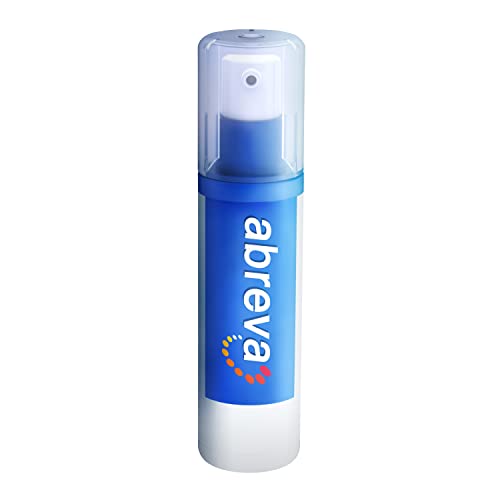Can I Go to the Dentist with a Cold Sore?
If you are worried about Can I go to the dentist with a cold sore? Let me frankly tell you that it is “Yes, you can go to the dentist with a cold sore. Since Cold Sores are caused by a virus known as HSV-1 and is contagious that can spread a lot so you need to take some precautionary measure by your own.
Cold sores, also known as oral herpes or fever blisters, are caused by the herpes simplex virus type 1 (HSV-1). They typically appear as small, fluid-filled blisters on or around the lips, and can be painful or uncomfortable. Cold sores are highly contagious and can be transmitted through direct contact, such as kissing or sharing utensils.
Treat cold sore first with Abreva cream:
While Abreva is a commonly used over-the-counter cream for treating cold sores, it is important to note that individual healing times may vary. While some people may experience significant improvement within a few days of using Abreva, it is not guaranteed that a cold sore will be completely healed within a specific timeframe such as 2 and a half days.
Abreva 10 Percent Docosanol Cold Sore Treatment
$15.20
The effectiveness of Abreva in treating cold sores depends on various factors, including the stage of the cold sore, individual immune response, and adherence to proper application techniques. Do you know Abreva is expensive due to it’s huge demand and fast healing features. Abreva is designed to speed up the healing process and alleviate symptoms, but it may not eliminate the cold sore entirely within a short period.
It is recommended to start using Abreva at the earliest signs of a cold sore, such as tingling or itching, and continue applying it as directed until the cold sore has healed completely. Consistent and proper application of Abreva can help reduce the duration of the cold sore and promote faster healing.
However, it is important to keep in mind that cold sores typically go through different stages, including blister formation, scabbing, and eventual healing. The entire process can take up to 7-10 days or sometimes longer, depending on individual factors and the severity of the outbreak.
Can I Go to the Dentist with a Cold Sore? Precautions and Considerations:
When it comes to going to the dentist with a cold sore, several precautions and considerations should be kept in mind to ensure the well-being of both the patient and the dental staff.
i) Talking to Your Dentist:
Before your dental appointment, it is important to have a conversation with your dentist about your cold sore. By informing them about your condition, they can take appropriate precautions to minimize the risk of spreading the virus. Dental instruments can potentially irritate the cold sore, so it is crucial for the dentist to be aware of its presence.
ii) Calling Ahead:
If you currently have an active cold sore, it is advisable to call the dental office in advance. Some dentists may prefer to reschedule the appointment until the cold sore has healed and is no longer contagious. This precaution helps protect both the dental staff and other patients from potential infection.
iii) Using a Cool Compress:
If you decide to proceed with your dental visit while having a cold sore, using a cool compress can provide temporary relief from pain and reduce redness. Applying a cool compress to the affected area for short intervals can help alleviate discomfort during the treatment.
iv) Understanding Contagion:
Cold sores are highly contagious, especially when they are in the active stage. Even with proper precautions, there is still a risk of spreading the virus. It is crucial to avoid activities that can transmit the infection, such as kissing or sharing utensils. Practicing good hand hygiene, such as washing hands before and after touching the cold sore, is also essential to prevent the spread of the virus.
v). Timing Your Dental Visit:
Timing is an important factor when considering a dental appointment with a cold sore. It is generally recommended to schedule the visit after the cold sore has started healing. This is typically 7-10 days after the initial tingling sensation, when the sore has crusted or scabbed over. At this stage, the cold sore becomes less contagious.
vi) Rescheduling if Needed:
If the crust or scab of the cold sore may cause discomfort during the dental visit, it is wise to consider rescheduling the appointment. Holding the mouth open for extended periods during dental procedures can irritate the cold sore and potentially impede the healing process. Prioritizing your comfort and well-being is important in making an informed decision.
vii) Communicating with Your Dentist:
To ensure a smooth dental experience, it is essential to keep your dentist informed about the status of your cold sore. Contacting the dental office at least 24 hours in advance allows for open communication and discussion regarding your situation. This way, any necessary adjustments or accommodations can be made.
viii) Speeding Up Recovery:
If you wish to expedite the healing process, certain options may be available. Antiviral medications can be prescribed by your healthcare provider to reduce the severity and duration of the cold sore outbreak. Over-the-counter remedies containing ingredients such as phenol and menthol can provide relief from pain and promote healing.
FAQs:
Can I transmit the cold sore virus to my dentist or dental hygienist during a dental procedure?
It is possible to transmit the cold sore virus to dental professionals if proper precautions are not taken. However, by informing your dentist about your cold sore and following recommended hygiene practices, the risk of transmission can be minimized.
Will the dental treatment worsen or prolong the healing process of my cold sore?
Dental treatment itself should not worsen or prolong the healing process of a cold sore. However, certain procedures that involve contact with the affected area may cause temporary discomfort. Discussing your concerns with your dentist can help ensure a comfortable experience.
Can I receive anesthesia or local numbing injections if I have a cold sore?
In most cases, receiving anesthesia or local numbing injections is still possible even if you have a cold sore. However, it is important to inform your dentist about the cold sore beforehand so they can take precautions and make appropriate decisions regarding your treatment.
Are there any specific oral care products or techniques I should follow while I have a cold sore?
While you have a cold sore, it is generally recommended to avoid any oral care products or techniques that may irritate the affected area. Using a soft-bristled toothbrush and gentle brushing around the cold sore can help maintain oral hygiene without aggravating the sore.
Can I wear my dentures or oral appliances if I have a cold sore?
If you wear dentures or oral appliances, it is advisable to minimize their use or avoid wearing them altogether during the active stage of a cold sore. This helps prevent discomfort and potential contamination of the appliances. Consult with your dentist for specific guidance based on your individual situation.
Should I treat cold sore with Abreva?
Yes, Abreva is a commonly used over-the-counter cream for treating cold sores. It is specifically formulated to help heal cold sores and reduce their duration. Abreva contains the active ingredient docosanol, which works by preventing the cold sore virus from spreading and replicating. When applied at the first sign of a cold sore, Abreva can help speed up the healing process and alleviate symptoms such as pain and itching.
Conclusion:
In conclusion, whether or not you can go to the dentist with a cold sore depends on several factors and precautions. It is crucial to communicate with your dentist, understand the contagious nature of cold sores, and prioritize the well-being of both yourself and the dental staff.
By taking appropriate measures and making informed decisions, you can ensure a safe and comfortable dental experience while managing your cold sore effectively.






